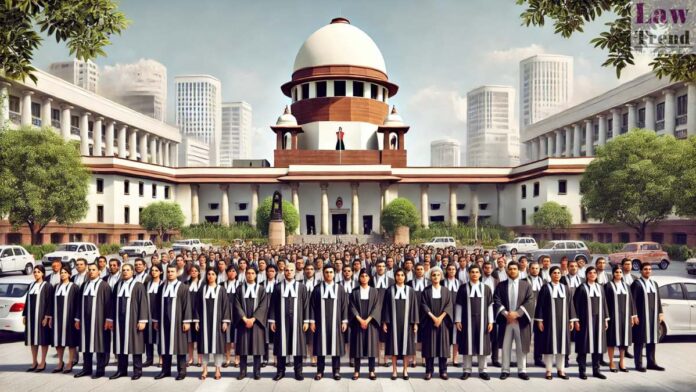In a significant overhaul of the procedure for conferring the designation of Senior Advocate, the Supreme Court on Tuesday issued a fresh set of guidelines, discarding the existing marking-based evaluation system. A Bench comprising Justices Abhay S Oka, Ujjal Bhuyan, and SVN Bhatti directed all High Courts across the country to amend their rules in accordance with the new framework within four months.
The Court ruled that the decision to confer Senior Advocate status shall rest with the Full Court of the respective High Court or the Supreme Court. The applications of all eligible candidates, along with supporting documents vetted by the Permanent Secretariat, will be placed before the Full Court.
“The endeavour can be always made to arrive at consensus,” the Court said, adding that in the absence of consensus, the decision must be taken through a democratic method of voting. Whether a secret ballot is necessary in specific instances will be left to the discretion of each High Court.
Key Highlights of the Judgment:
- Marking System Abolished: The Court decisively removed the existing marking scheme for evaluating applications.
- Annual Designation Process: One round of designation is to be undertaken every year.
- No Need to Reconsider 10-Year Practice Requirement: The Court upheld the minimum requirement of ten years of legal practice for eligibility.
- No Individual Recommendations: Judges can no longer recommend candidates for designation in their personal capacity.
- Application-Based and Suo Motu Designation Permitted: Advocates can submit applications, which will be treated as consent. However, the Full Court may also designate advocates without an application.
The ruling came in the matter of Jitender @ Kalla v. State of NCT of Delhi, originally a criminal appeal, in which concerns were raised regarding false pleadings and suppression of facts. The incident prompted the Court to take a broader look into the process of granting senior designations. Senior Advocate Rishi Malhotra’s conduct during the case was also examined by the Court.
The current system of designation stems from the 2017 landmark decision in Indira Jaising v. Supreme Court of India, which introduced a more structured and transparent process for the designation of Senior Advocates. However, since then, several High Courts and members of the Bar had called for a review of certain aspects of the framework.
The Court clarified that any designation process already underway may proceed under the existing rules framed in line with the Indira Jaising judgment. However, no new designation exercise should be initiated until the amended rules, as per the new guidelines, are in place.
“It is obvious that even this court will have to undertake the exercise of amending the rules and guidelines in the light of this decision,” the Bench observed, concluding the judgment by stressing the importance of regular review and enhancement of the system.




